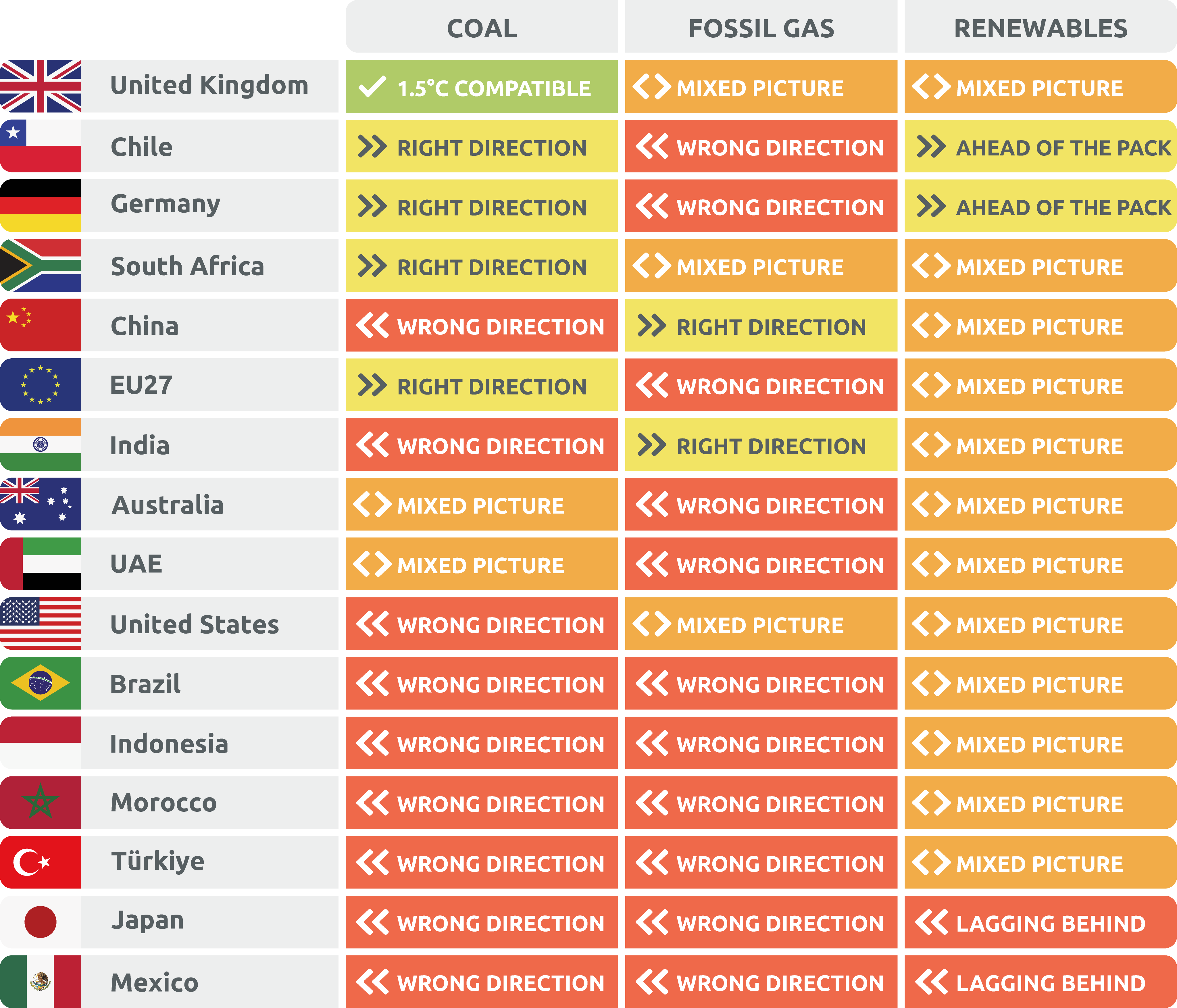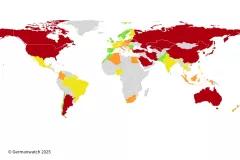The Climate Action Tracker today released a new analysis of progress across 16 countries in fossil gas, coal and renewable power, showing a mixed bag of progress with some signs of hope.
To help track global and country level progress toward a decarbonised world, the Climate Action Tracker has established global and country-specific 1.5˚C compatible benchmarks for the shares of fossil gas, coal and renewable energy in the power sector, arguably the most important in decarbonising the global economy.
It established these benchmarks for 16 countries, and then looked to see how they measure up against them. The countries are Australia, Brazil, Chile, China, EU27, Germany, India, Indonesia, Japan, Mexico, Morocco, Türkiye, South Africa, United Arab Emirates, the UK, and the US.
No country assessed is fully on track for this power shift, but there are some positive signs:
- The US and the UK’s 2035 power sector decarbonisation targets are in line with the needed unabated fossil gas phase-out by that time, but both need to do more to achieve them.
- The UK is on track to phase out coal by 2024 - which is on a 1.5°C compatible timeline, with the EU, Germany, Chile and South Africa heading in the right direction. Brazil could get on the right track if it repealed Bolsonaro-era legislation.
- Germany and Chile are ahead of the pack in terms of renewables deployment. While the sector is booming elsewhere (China, India), it is still not fast enough for the speed of fossil phase-out needed.
- India and China have 1.5°C compatible levels of fossil gas power now, but both need to develop their longer-term phase-out strategies.
There's still plenty to worry about:
- No country analysed has an explicit fossil gas phase-out plan, and the fossil gas pipeline is now larger than the pipeline for coal.
- While the global coal pipeline outside of China is shrinking, China's coal plant permitting spree is a cause for concern. If it continues, the only way to avoid a major increase in emissions would be to drastically cut coal power plant utilisation
- Most countries are not doing enough to accelerate the renewable energy transition, with Japan and Mexico at the back of the pack.
- The UAE has called for an emissions phase-out rather than a fossil fuel one. Our analysis shows that CCS will play a minimal role in fossil gas power (and none at all in coal). As incoming COP President, the UAE can make a significant impact on climate ambition by securing a global agreement to phase out fossil gas by 2040 globally and lead by example by doing so at home by 2035.
"This month the G20 agreed a global renewable energy goal. Our global benchmark for renewables, mapped onto the national level, highlights the real opportunities for wind and solar expansion. Yet governments still appear to be hedging their bets and procrastinating on a fossil fuel phase-out," said CAT partner organisation Climate Analytics and report lead author Neil Grant.
"What's also clear from our work is that we find no role for CCS in a decarbonised power sector. The future of fossil fuels in a 1.5˚C compatible power sector transition - abated or unabated - is the same: one of swift decline," said Grant.
The CAT added that key to the developing world meeting the phase-out dates was finance.
"While the handful of 'just energy transition partnerships, or JETP's are positive, they're not enough," said CAT partner organisation NewClimate Institute's Hanna Fekete.
“Countries like Morocco, heavily reliant on coal power today, have huge renewable energy potential, but to unlock that requires international support."
The key dates for 1.5 compatible benchmarks in the power sector:
- Developed countries: phase out coal by 2030, unabated fossil gas by 2035
- Developing countries: phase out coal and fossil gas by 2040
- All countries: above 80% of electricity from renewables by 2035; 90-100% renewable electricity supply by 2050.









